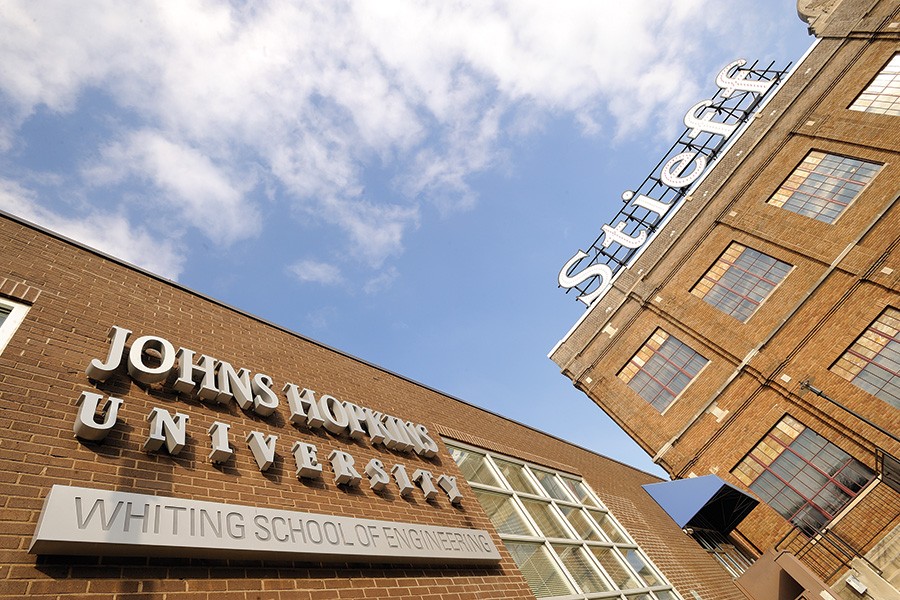FastForward describes itself as a catalyst, a technology accelerator, an education center, and an innovation system. If that does not quite clear things up for you, try this: FastForward is the latest effort to take technological advances from Johns Hopkins laboratories and turn them into commercial ventures.
Underwritten by the Whiting School of Engineering, FastForward offers qualified entrepreneurs access to expert assessment, business coaching, workspace, a shared laboratory, and help securing funding. The idea is to foster the convergence of ideas, technical skills, business savvy, money, and room to work. The goal? Bring intellectual property to market, accelerating the creation of new companies that will grow in Baltimore.
FastForward has outfitted the Stieff Building near the Homewood campus to accommodate 16 nascent companies. To qualify for the program, you need a Johns Hopkins connection, but that has been defined for maximum inclusion. Hopkins faculty, researchers, and students meet the criteria, obviously, but so do postdocs, alumni, and parents of students. There are two important stipulations—you must be incorporated and must have secured some outside funding, either seed money from federal or state sources or private venture investment.
Companies selected for FastForward get affordable office and lab space for up to two years; rent can be deferred as debt that the university can convert into an equity stake in the company. Once installed in the Stieff Building, the companies can avail themselves of shared laboratory equipment and a machine shop for the manufacture of prototypes. Intangible resources include a network of FastForward staff, Hopkins faculty, and alumni who offer guidance on the practical aspects of licensing, patents, business plans, and whatever else entrepreneurs need to get a company off the ground. Outside investors will have the opportunity to put money into these new businesses through the Johns Hopkins Venture Fund.
John Fini, FastForward's director (and director of the Homewood Intellectual Property and Technology Commercialization Office), told the Johns Hopkins Hub, "It's already growing very, very fast. And that says something about Johns Hopkins' entrepreneurial spirit."
Three companies are now incubating in the FastForward nest. Hopkins professor of computer science Gregory Hager co?founded Clear Guide Medical LLC to bring to market portable ultrasound technology for guiding biopsy needles. (Another of the co?founders, Dorothee Heisenberg, is also FastForward's venture coordinator.) Another startup, Circulomics Inc., plans to commercialize assays for molecular and biomarker analysis. Its founder and CEO, Kelvin Liu, Med '11 (PhD), graduated from Johns Hopkins with a doctorate in biomedical engineering. Twistnostics LLC, the third company, is working on genotyping technology for medical diagnosis using work begun by its founder, Alfredo Celedon, Engr '09 (PhD), when he was a Hopkins graduate student studying the mechanical properties of DNA.
Posted in Science+Technology
Tagged business, fastforward








